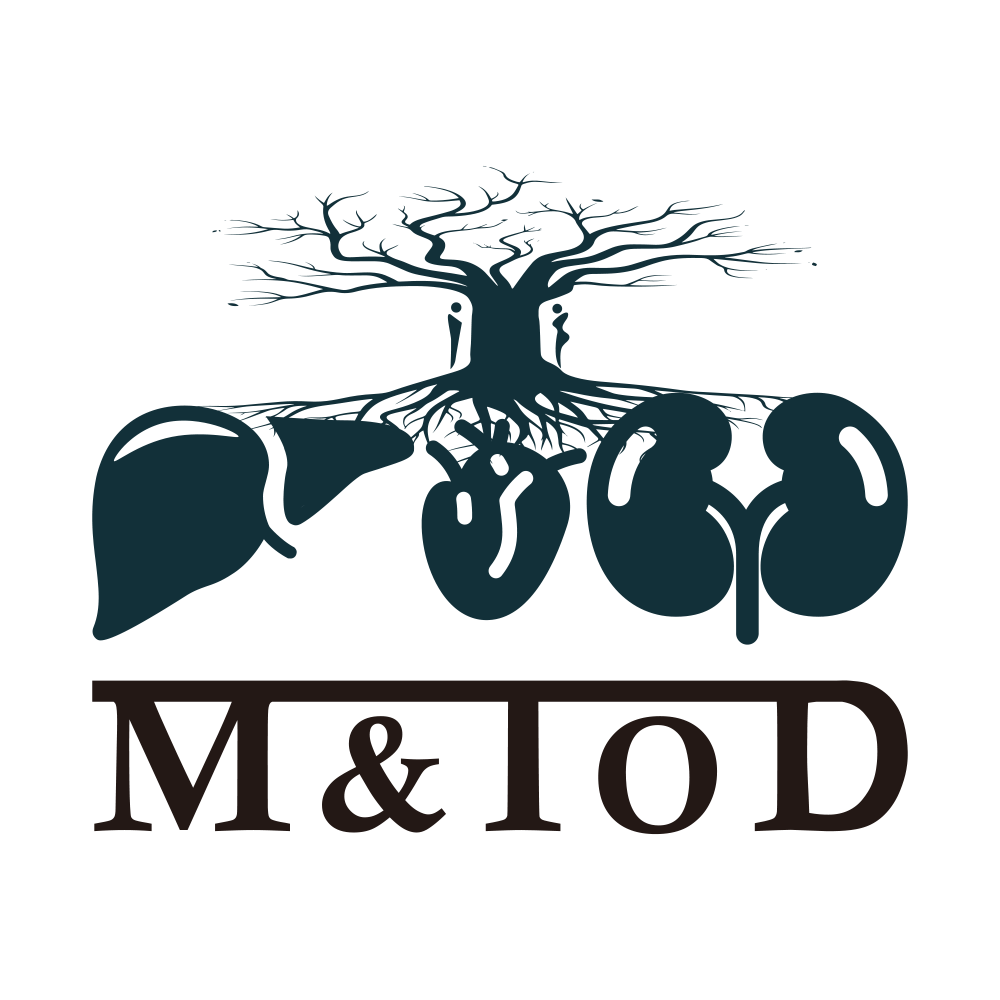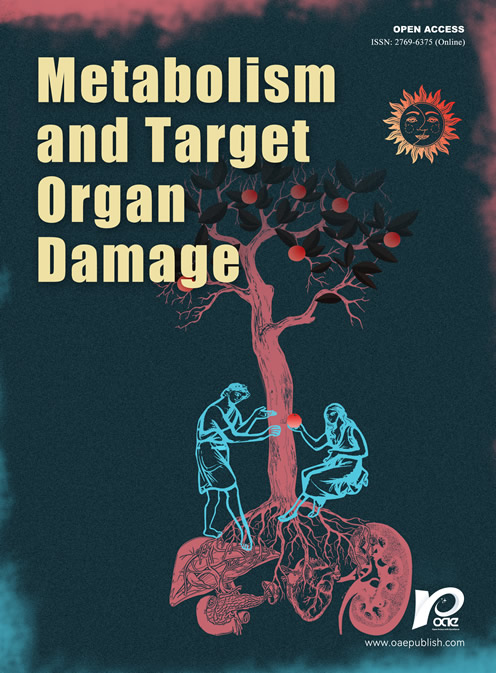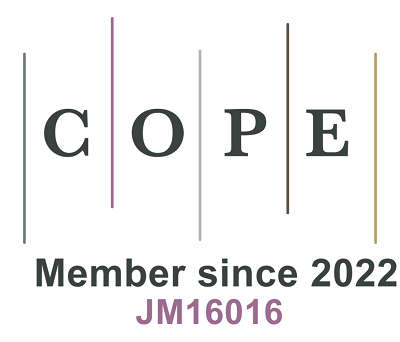REFERENCES
1. Grossmann M, Wittert G. Androgens, diabetes and prostate cancer. Endocr Relat Cancer. 2012;19:F47-62.
2. Tsilidis KK, Allen NE, Appleby PN, et al. Diabetes mellitus and risk of prostate cancer in the European prospective investigation into cancer and nutrition. Int J Cancer. 2015;136:372-81.
3. Zaccardi F, Webb DR, Yates T, Davies MJ. Pathophysiology of type 1 and type 2 diabetes mellitus: a 90-year perspective. Postgrad Med J. 2016;92:63-9.
4. Beckmann K, Crawley D, Nelson WG, et al. Hormonal patterns in men with prediabetes and diabetes in NHANES III: possible links with prostate cancer. Cancer Causes Control. 2022;33:429-40.
5. Giovannucci E, Harlan DM, Archer MC, et al. Diabetes and cancer: a consensus report. Diabetes Care. 2010;33:1674-85.
6. Bansal D, Bhansali A, Kapil G, Undela K, Tiwari P. Type 2 diabetes and risk of prostate cancer: a meta-analysis of observational studies. Prostate Cancer Prostatic Dis. 2013;16:151-8, S1.
7. Darbinian JA, Ferrara AM, Van Den Eeden SK, Quesenberry CP Jr, Fireman B, Habel LA. Glycemic status and risk of prostate cancer. Cancer Epidemiol Biomarkers Prev. 2008;17:628-35.
8. Lavalette C, Cordina-Duverger E, Rébillard X, et al. Diabetes, metabolic syndrome and prostate cancer risk: results from the EPICAP case-control study. Cancer Epidemiol. 2022;81:102281.
9. Lin E, Garmo H, Van Hemelrijck M, et al. Association of type 2 diabetes mellitus and antidiabetic medication with risk of prostate cancer: a population-based case-control study. BMC Cancer. 2020;20:551.
10. Fall K, Garmo H, Gudbjörnsdottir S, Stattin P, Zethelius B. Diabetes mellitus and prostate cancer risk; a nationwide case-control study within PCBaSe Sweden. Cancer Epidemiol Biomarkers Prev. 2013;22:1102-9.
11. Turner EL, Lane JA, Donovan JL, et al. Association of diabetes mellitus with prostate cancer: nested case-control study (Prostate testing for cancer and treatment study). Int J Cancer. 2011;128:440-6.
12. Smith MR, Bae K, Efstathiou JA, et al. Diabetes and mortality in men with locally advanced prostate cancer: RTOG 92-02. J Clin Oncol. 2008;26:4333-9.
13. Murtola TJ, Vihervuori VJ, Lahtela J, et al. Fasting blood glucose, glycaemic control and prostate cancer risk in the finnish randomized study of screening for prostate cancer. Br J Cancer. 2018;118:1248-54.
14. Ma C, Cui D, Han B, et al. Poorly controlled diabetes mellitus increases the risk of deaths and castration-resistance in locally advanced prostate cancer patients. Cancer Invest. 2023;41:345-53.
15. Onitilo AA, Stankowski RV, Berg RL, et al. Type 2 diabetes mellitus, glycemic control, and cancer risk. Eur J Cancer Prev. 2014;23:134-40.
16. Jayedi A, Djafarian K, Rezagholizadeh F, Mirzababaei A, Hajimohammadi M, Shab-Bidar S. Fasting blood glucose and risk of prostate cancer: a systematic review and meta-analysis of dose-response. Diabetes Metab. 2018;44:320-7.
17. Monroy-Iglesias MJ, Russell B, Crawley D, et al. Metabolic syndrome biomarkers and prostate cancer risk in the UK Biobank. Int J Cancer. 2021;148:825-34.
18. Hitron A, Adams V, Talbert J, Steinke D. The influence of antidiabetic medications on the development and progression of prostate cancer. Cancer Epidemiol. 2012;36:e243-50.
19. Gang P, Mo L, Lu Y, Runqi L, Xing Z. Diabetes mellitus and the risk of prostate cancer: an update and cumulative meta-analysis. Endocr Res. 2015;40:54-61.
20. Ahearn TU, Peisch S, Pettersson A, et al. Transdisciplinary prostate cancer partnership (ToPCaP). Expression of IGF/insulin receptor in prostate cancer tissue and progression to lethal disease. Carcinogenesis. 2018;39:1431-7.
21. Travis RC, Appleby PN, Martin RM, et al. A meta-analysis of individual participant data reveals an association between circulating levels of IGF-I and prostate cancer risk. Cancer Res. 2016;76:2288-300.
22. King ER, Wong KK. Insulin-like growth factor: current concepts and new developments in cancer therapy. Recent Pat Anticancer Drug Discov. 2012;7:14-30.
23. Heni M, Hennenlotter J, Scharpf M, et al. Insulin receptor isoforms A and B as well as insulin receptor substrates-1 and -2 are differentially expressed in prostate cancer. PLoS One. 2012;7:e50953.
24. Watts EL, Fensom GK, Smith Byrne K, et al. Circulating insulin-like growth factor-I, total and free testosterone concentrations and prostate cancer risk in 200 000 men in UK Biobank. Int J Cancer. 2021;148:2274-88.
25. Hosseini L, Alinezhad F, Kharazi U, Badalzadeh R. The Association of type 2 diabetes and site-specific cancers: linking mechanisms. Crit Rev Oncog. 2019;24:259-67.
26. Lutz SZ, Hennenlotter J, Scharpf MO, et al. Androgen receptor overexpression in prostate cancer in type 2 diabetes. Mol Metab. 2018;8:158-66.
27. Yassin A, AlRumaihi K, Alzubaidi R, Alkadhi S, Al Ansari A. Testosterone, testosterone therapy and prostate cancer. Aging Male. 2019;22:219-27.
28. Kaplan AL, Hu JC, Morgentaler A, Mulhall JP, Schulman CC, Montorsi F. Testosterone therapy in men with prostate cancer. Eur Urol. 2016;69:894-903.
29. Gong Z, Neuhouser ML, Goodman PJ, et al. Obesity, diabetes, and risk of prostate cancer: results from the prostate cancer prevention trial. Cancer Epidemiol Biomarkers Prev. 2006;15:1977-83.
30. Khan S, Cai J, Nielsen ME, et al. The association of diabetes and obesity with prostate cancer progression: HCaP-NC. Prostate. 2017;77:878-87.
31. Choi JB, Moon HW, Park YH, et al. The impact of diabetes on the risk of prostate cancer development according to body mass index: a 10-year nationwide cohort study. J Cancer. 2016;7:2061-6.
32. Lee IM, Sesso HD, Paffenbarger RS Jr. A prospective cohort study of physical activity and body size in relation to prostate cancer risk (United States). Cancer Causes Control. 2001;12:187-93.
33. Wright ME, Chang SC, Schatzkin A, et al. Prospective study of adiposity and weight change in relation to prostate cancer incidence and mortality. Cancer. 2007;109:675-84.
34. Suarez Arbelaez MC, Nackeeran S, Shah K, et al. Association between body mass index, metabolic syndrome and common urologic conditions: a cross-sectional study using a large multi-institutional database from the United States. Ann Med. 2023;55:2197293.
35. Barrington WE, Schenk JM, Etzioni R, et al. Difference in association of obesity with prostate cancer risk between US african american and non-hispanic white men in the selenium and Vitamin E cancer prevention trial (SELECT). JAMA Oncol. 2015;1:342-9.
36. Zhu D, Toker M, Shyr W, Fram E, Watts KL, Agalliu I. Association of obesity and diabetes with prostate cancer risk groups in a multiethnic population. Clin Genitourin Cancer. 2022;20:299.e10.
37. Francesco S, Tenaglia RL. Obesity, diabetes and aggressive prostate cancer hormone-naïve at initial diagnosis. Cent European J Urol. 2014;66:423-7.
38. Bub JD, Miyazaki T, Iwamoto Y. Adiponectin as a growth inhibitor in prostate cancer cells. Biochem Biophys Res Commun. 2006;340:1158-66.
39. Burton A, Martin RM, Holly J, et al. Associations of adiponectin and leptin with stage and grade of PSA-detected prostate cancer: the ProtecT study. Cancer Causes Control. 2013;24:323-34.
40. Lonardo A, Byrne CD, Targher G. Precision medicine approaches in metabolic disorders and target organ damage: where are we now, and where are we going? Metab Target Organ Damage. 2021;1:3.
41. Tayanloo-Beik A, Sarvari M, Payab M, et al. OMICS insights into cancer histology; Metabolomics and proteomics approach. Clin Biochem. 2020;84:13-20.









